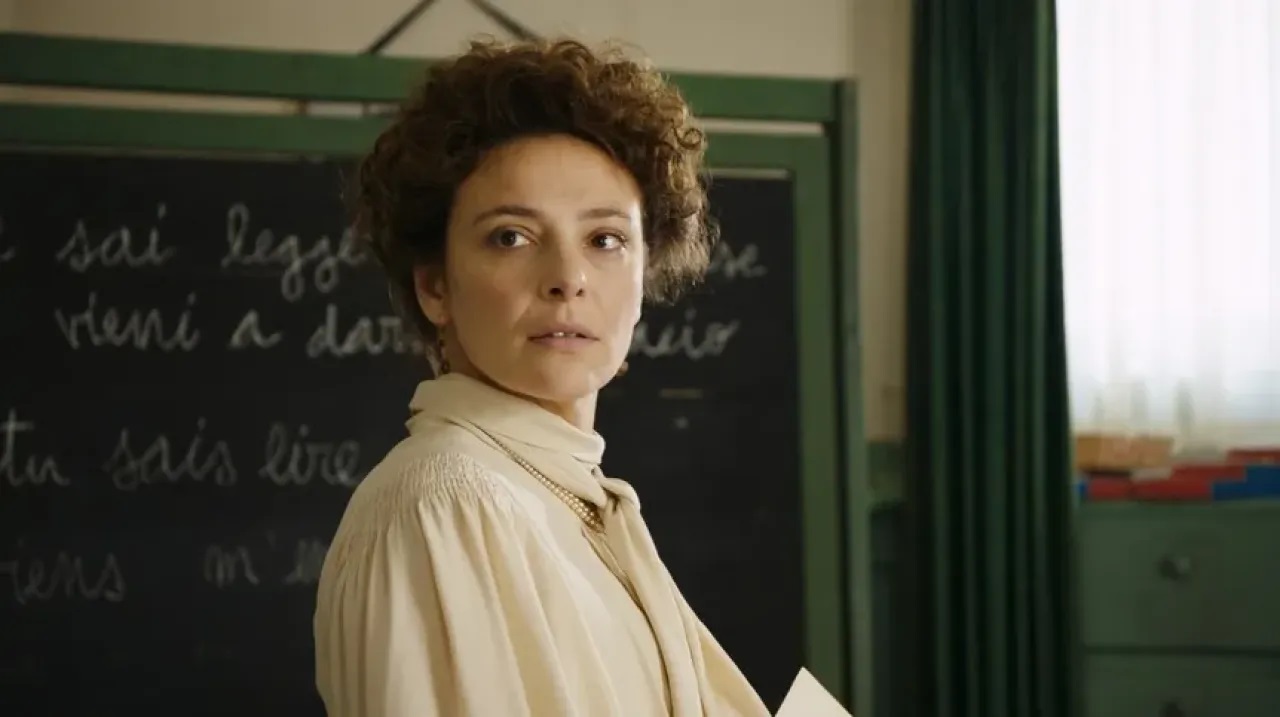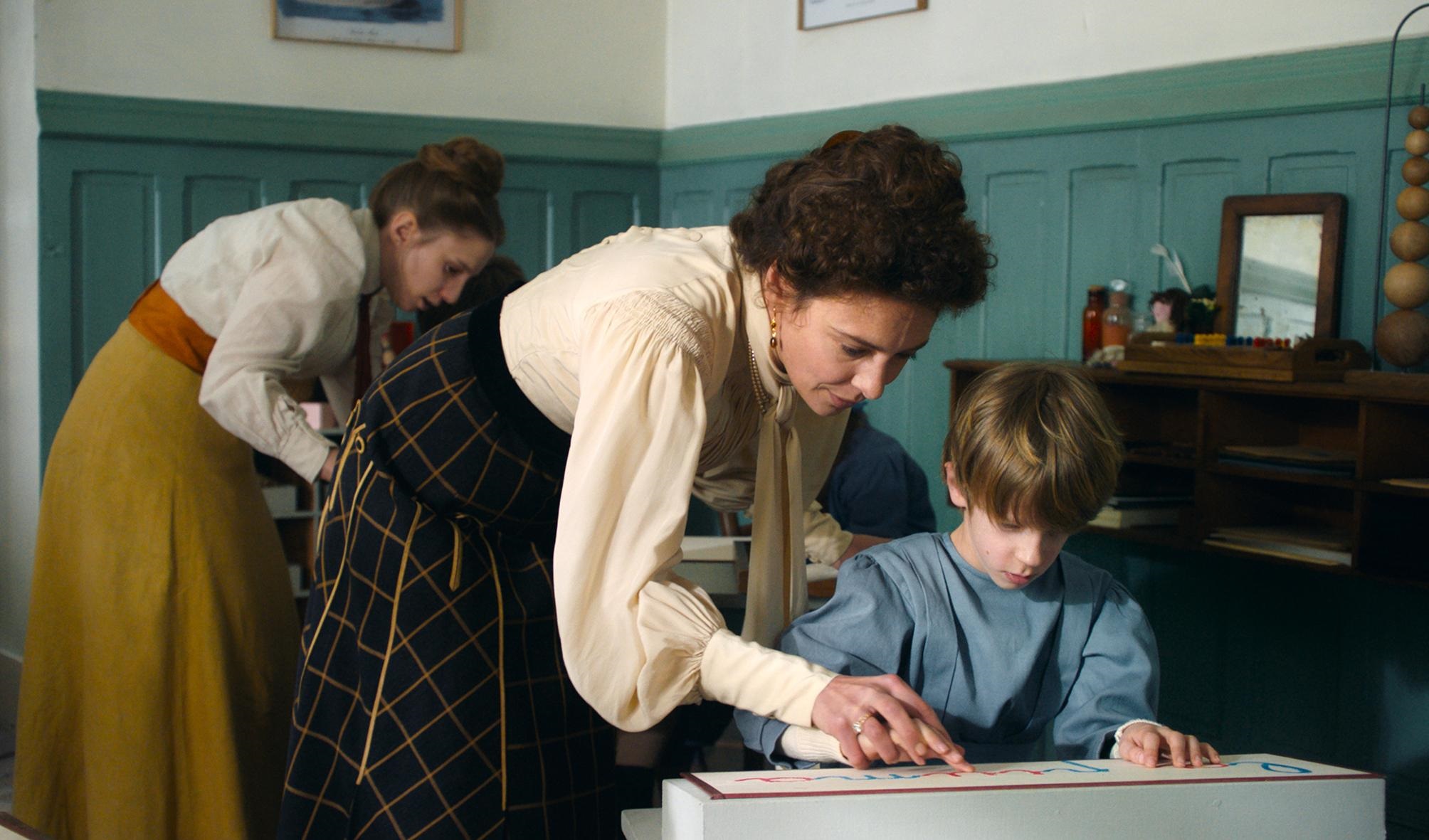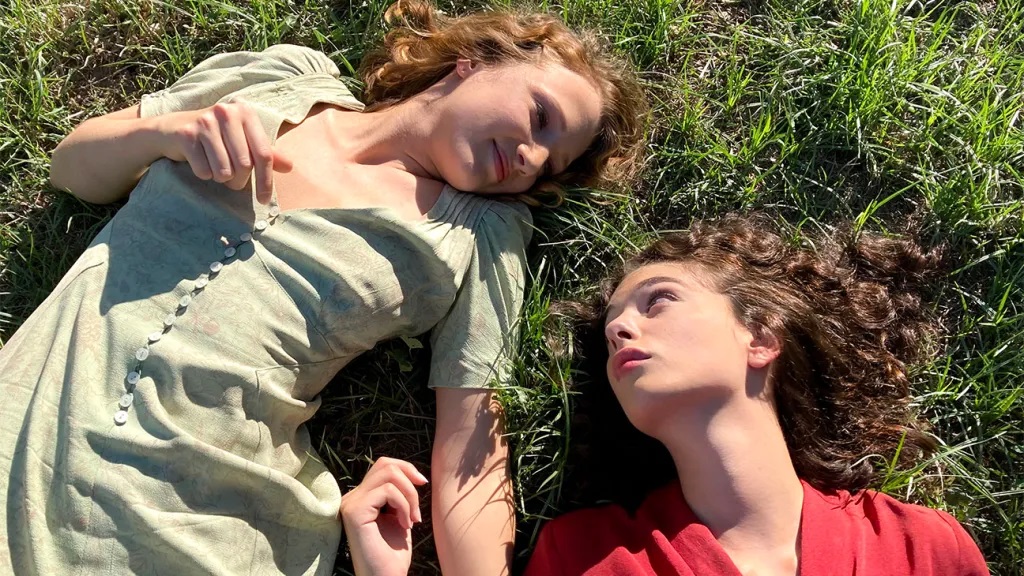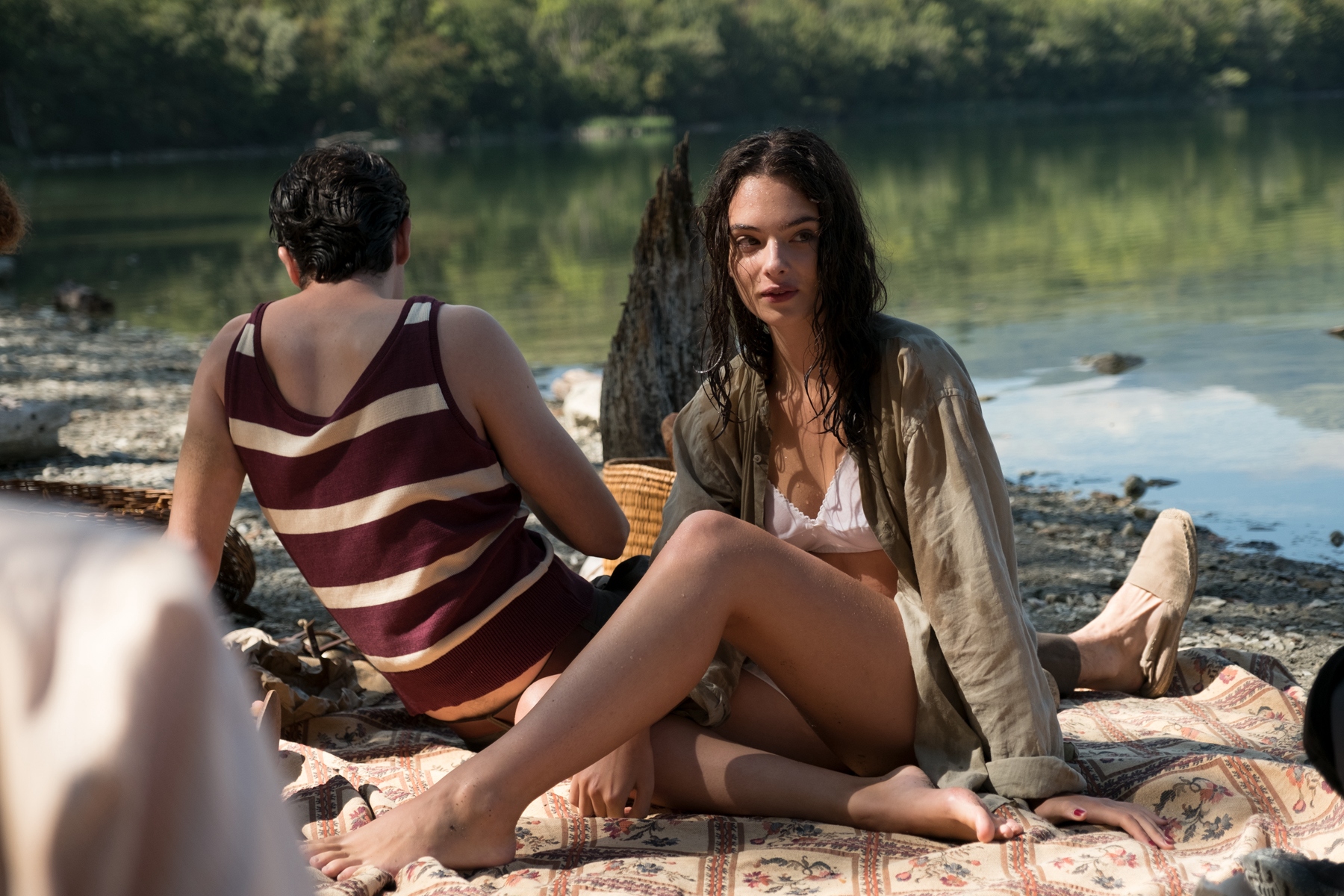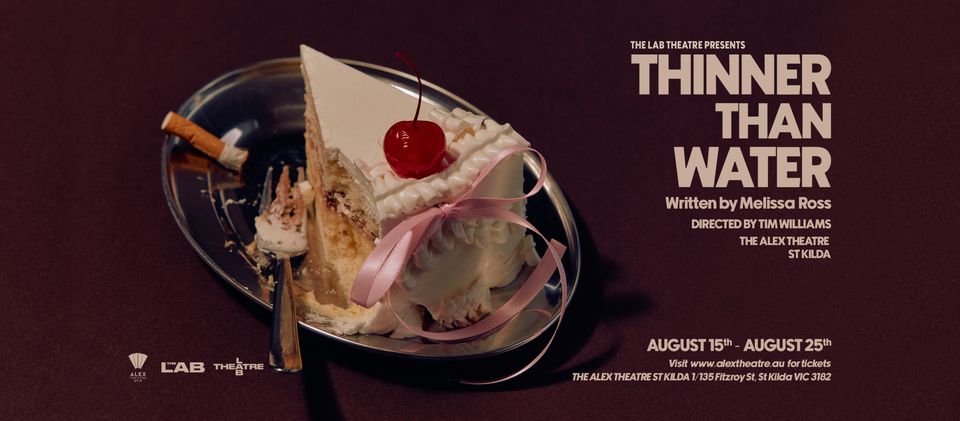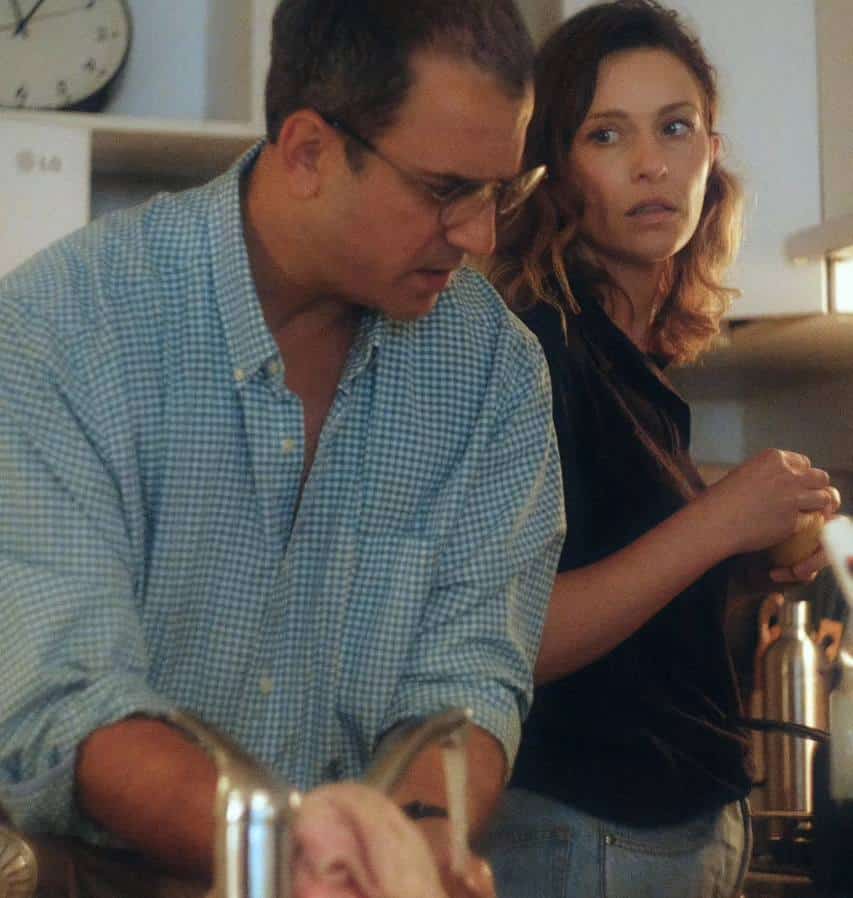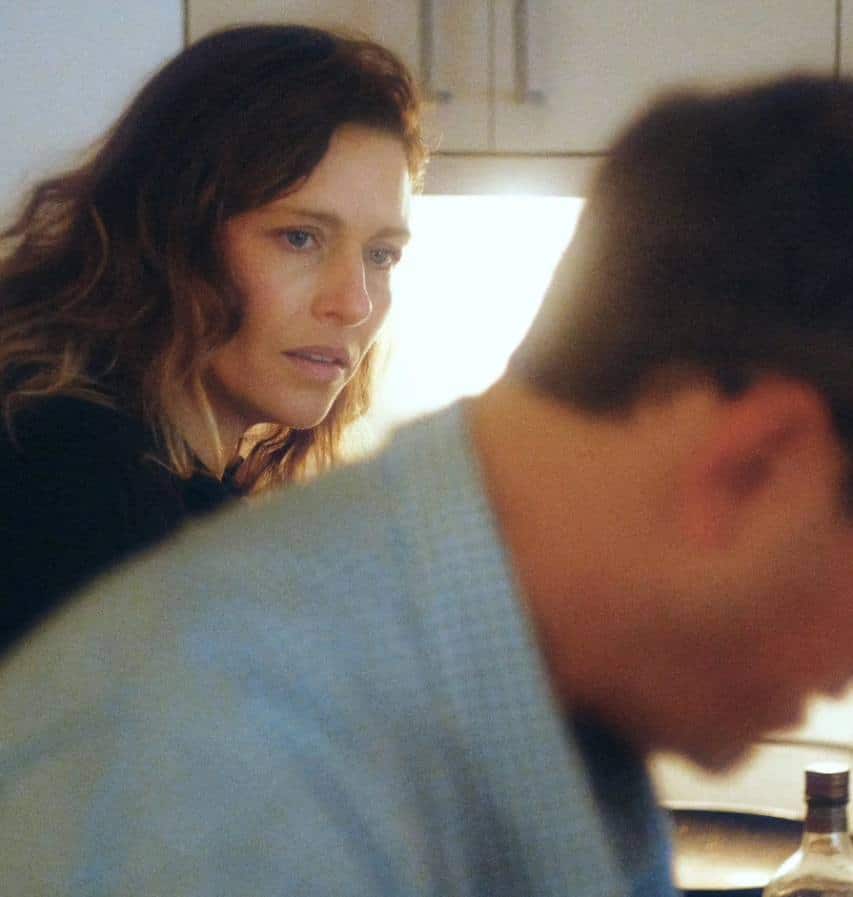The theatre collective PIGEONPIGEON showcased their play ‘FUTURE’ in the Melbourne Fringe Festival 2024. The original concept of taking different predictions about the future and turning them into a theatre production sparked my curiosity, and the hopeful tone of the synopsis intrigued me further.
I was disappointed by the incongruence of the synopsis and the show that I saw. It was very bleak. That’s not to say the show wasn’t without its strengths. I must give props to their use of props- giant jenga blocks and a large tome both full of predictions- were a couple of these that supported the show well. Some props were a little off-putting, such as a large notepad used to give prompts to their on stage “audience member”.
They built pace effectively to demonstrate a crescendo when reading through scripted predictions contained in a box, with the bits of paper left scattered around them. Following this an emotional monologue was delivered, where the very real, confronting, question many of us struggle to reconcile was raised- Is it fair on a child’s welfare to be brought into this world, when the climate crisis threatens their safety and wellbeing in ways we cannot yet even fathom. Unfortunately, the poorly synced text that was projected on the large screen behind them significantly detracted from the actor’s performance, and continued to irritate me throughout the entire show.
‘FUTURE’ felt structurally confused. I’d expected they would be dramatising different predictions on the future, instead it felt very bitsy with large chunks of the show entirely relying on audience participation. At the start of the show, they warned the audience about any loud sounds or bright lights to expect, painstakingly demonstrating the level of intensity that could be expected with each. This information was already provided in the ‘event warnings’ of the show summary. I’m sensitive to sound myself, but when I go to a play I expect my senses to be engaged and surprised throughout.
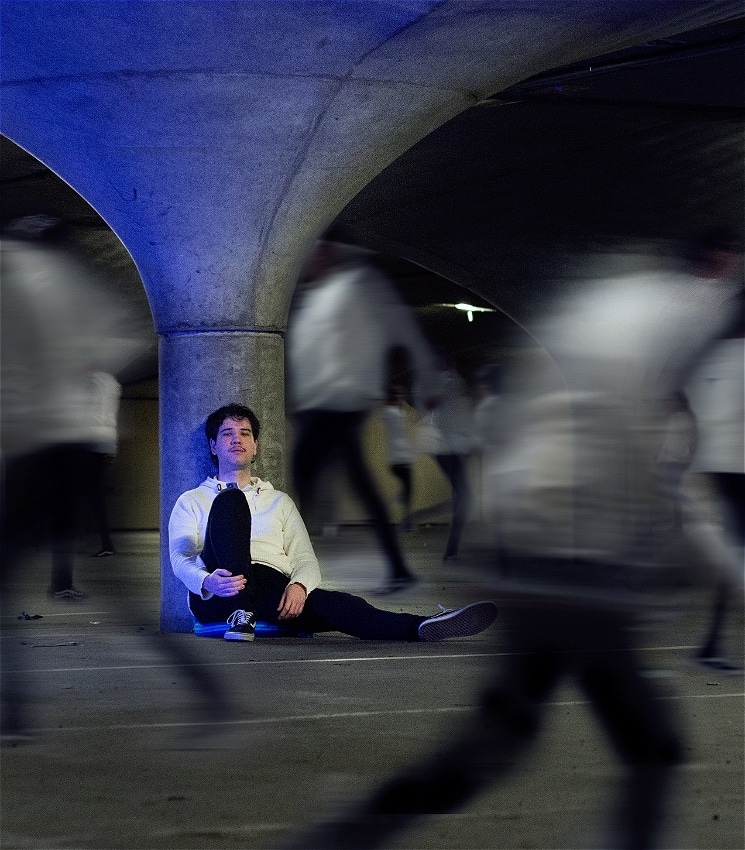

What I think was intended as a sensitive warning came across as pedantic coddling, delivered without any snappy energy to relieve the tension. It felt ironic, but I don’t think that was the intention. It provided an interesting subtext on the pervasive fog of anxiety Gen Z have grown up in, and the pendulum swing between action and inertia that often manifests. It would seem the entire framing and response is technology based, the cell phone is the gatekeeper, gateway, and fence. I wonder the level of awareness PIGEONPIGEON had on this, or if it was intrinsic.
A sore point for me was the en masse bagging of Taylor Swift from the cast and audience for her use of a private plane- is there really a practical alternative? As if she is the only carbon emitter on the planet, would she be so demonised if she wasn’t a powerful woman. Yet many far-left identifying people seem to have no issue fueling this hateful rhetoric. They might be surprised to know that her donations to various local UK foodbanks covered a years worth of meals for those organisations. I linger on this detail for two reasons- 1. It really frustrated me, and 2. It is emblematic of the show- a lot of negative commentary with little consideration for solutions.
I thought the “audience member” who came on stage had a certain charisma and levity that injected a bit of life into the show. Unfortunately, this impression waned as a function of the poor writing. The hope that was promised was hard to find. I think it was all strained into a bit about crabs that felt like it may have been inspired by The Hitchhiker’s Guide to the Galaxy type absurdism, but rather missed the mark. Maybe if I was born 7 years later the show would have resonated with me more.
I did attend ‘FUTURE’ with another person who is of that generation who found the show stilted as I did; so, it’s not entirely a function of age as to whether the humour that was given was perceived as having landed or not. If you’re looking for some hope, I’d avoid ‘FUTURE’, unless you really like crabs and awkward jokes.
For further information about PIGEONPIGEON, please checkout: https://www.pigeonpigeon.co/
Photographer: Jaimi Houston
This review also appears on It’s On The House. Check out more reviews at Whats The Show to see what else is on in your town.


